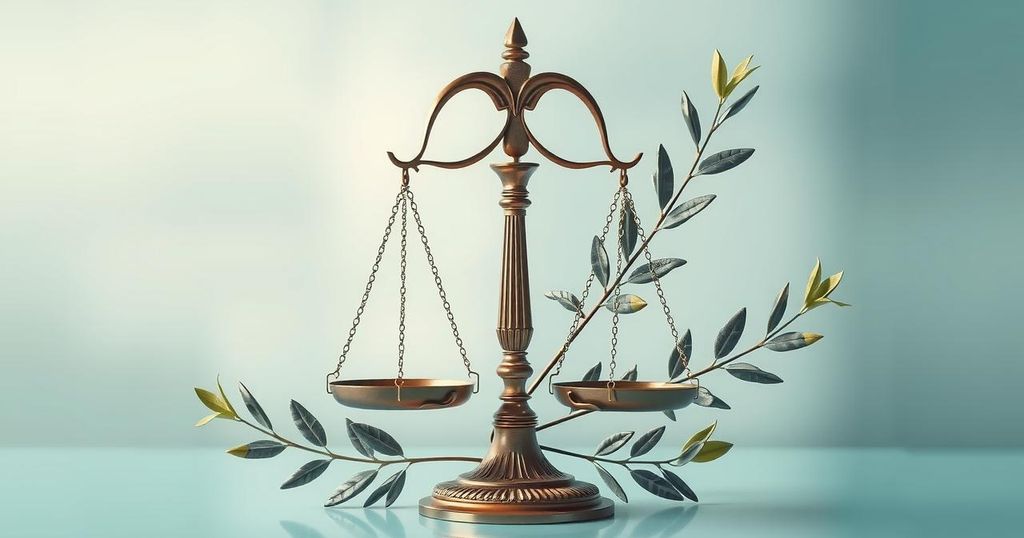Ismail Lghazaoui, a notable pro-Palestinian activist, was freed by a Moroccan court after international advocacy. Originally sentenced to one year in prison for promoting a US embassy blockade, his sentence was reduced to time served. His detention sparked solidarity amongst pro-Palestine groups and raised concerns over repression in Morocco following its normalization of ties with Israel.
A Moroccan court has released Ismail Lghazaoui, a well-known pro-Palestine activist, after significant international pressure. On February 5, the Casablanca appeal court reduced his one-year sentence to two months, which he had already served. Lghazaoui was previously sentenced for advocating a blockade of the U.S. embassy due to its support for Israel, facing charges of “incitement to commit crimes and misdemeanours using electronic means.”
Lghazaoui was detained on November 19, shortly after he urged port workers and the public to prevent two Maersk cargo ships from carrying military supplies to Israel. He also participated in an October protest in Casablanca, accusing the United States of supporting Israel’s actions in Gaza. Ahead of his appeal, worldwide BDS (Boycott, Divestment, and Sanctions) groups called for his release, condemning the Moroccan authorities’ efforts to stifle dissent regarding the normalization with Israel.
Upon his release, dozens of activists celebrated outside the Oukacha prison, showing solidarity with Lghazaoui. His mother, an influential figure in the campaign for his freedom, urged the liberation of other pro-Palestine prisoners, advocating for the broader release of all prisoners of conscience. “I call for the release of all prisoners of conscience and for the liberation of all Palestinian hostages in Israeli prisons,” she declared to reporters as she awaited her son.
Since the emergence of the Gaza conflict, numerous anti-normalization activists have encountered legal challenges in Morocco. Last December, a group of thirteen activists received suspended sentences for unauthorized protests against Carrefour, which they accused of ties to Israeli companies in illegal settlements. Similarly, Abdul Rahman Zankad was sentenced to five years for Facebook posts criticizing Israel and Morocco’s diplomatic ties with it.
Morocco established diplomatic relations with Israel in December 2020 under U.S. guidance. Since that time, local pro-Palestinian groups have voiced concerns over the government’s increasingly stringent measures to suppress dissent, aimed at safeguarding its normalization agreement with Israel despite ongoing violence in Gaza.
The article reports on the release of Ismail Lghazaoui, a prominent pro-Palestine activist in Morocco, who was incarcerated for advocating against the U.S. embassy’s support of Israel. His detention has sparked widespread international condemnation, notably from BDS groups, who claim it reflects Moroccan authorities’ attempts to criminalize opposition to normalization with Israel. The context of his case is set against Morocco’s political landscape following its diplomatic relations with Israel in 2020, which has led to increased repression of pro-Palestinian activists.
Ismail Lghazaoui’s release highlights the ongoing tensions in Morocco regarding free speech and dissent related to the Palestinian cause. His case underscores the severe repercussions faced by activists opposing Moroccan normalization with Israel. The international reaction in support of Lghazaoui indicates growing concern over human rights in Morocco, particularly relating to political expressions about foreign diplomacy.
Original Source: www.newarab.com




